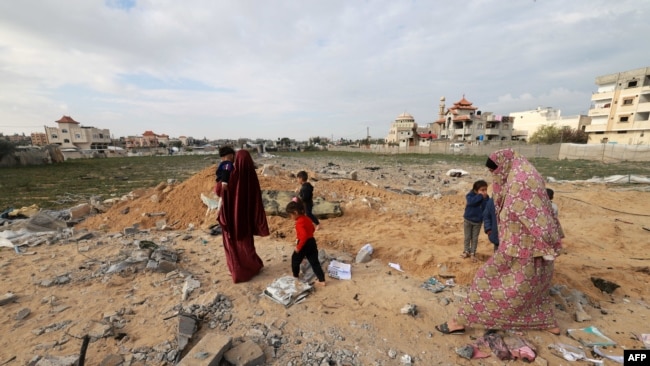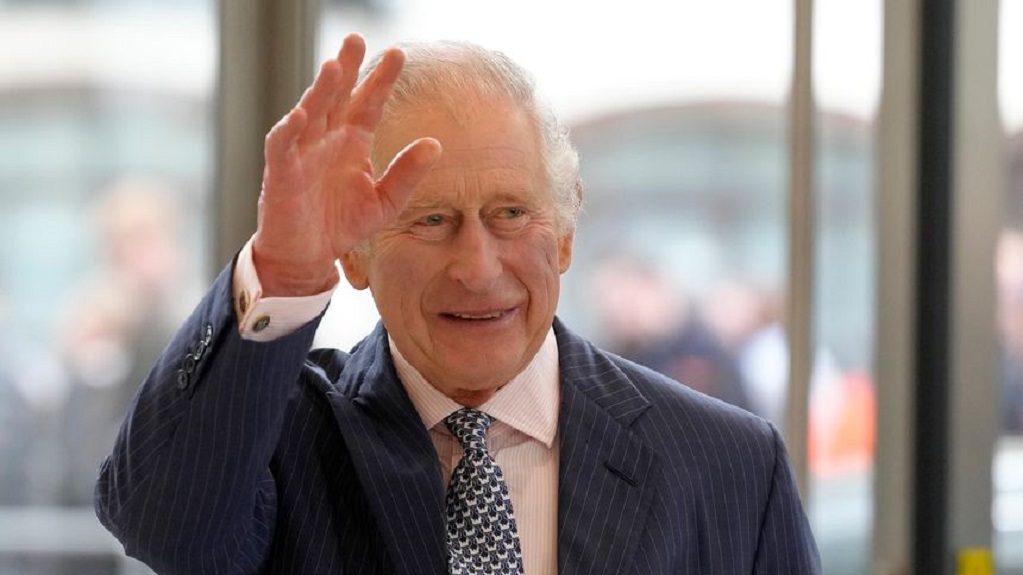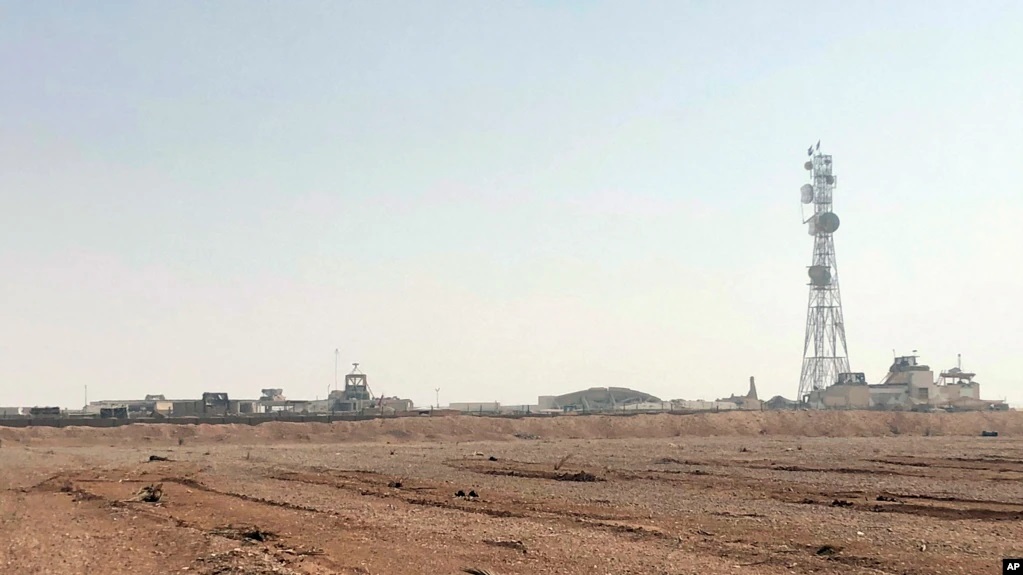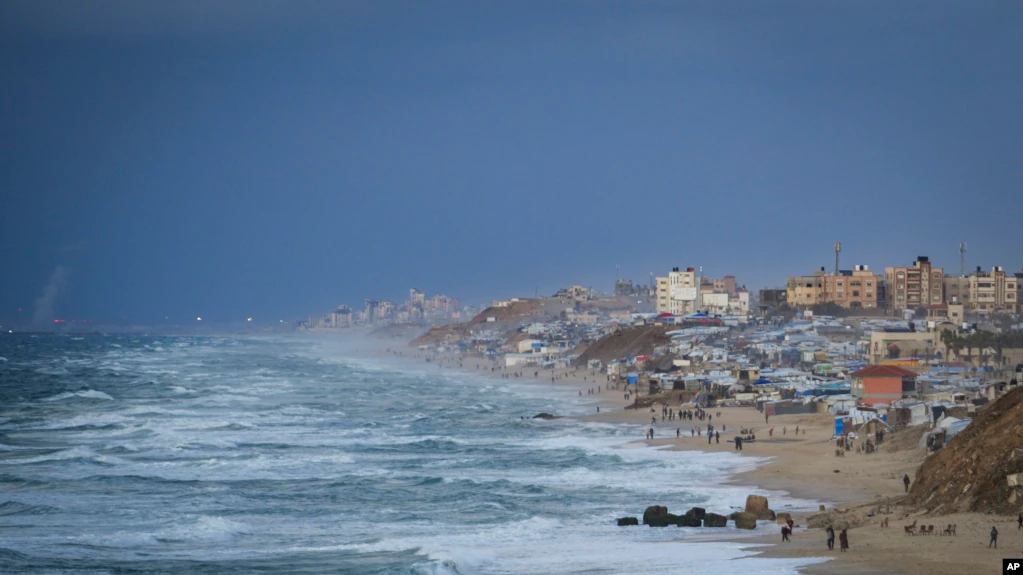Israel Threatens Ramadan Attack on Rafah if Hostages Not Released
Written by worldOneFm on February 19, 2024
Israeli forces carried out aerial attacks and ground operations Monday in the southern Gaza Strip, as Gaza health officials said the number of Palestinians killed there since October surpassed 29,000 people.
The Hamas-run health ministry said 107 people had been killed during the past day, and that the total number of people wounded in Israeli operations in Gaza had topped 69,000. The ministry includes civilians and militants in its tallies but has said about two-thirds of the casualties in Gaza are women and children.
Israel’s military reported strikes Monday on Khan Younis, the largest city in southern Gaza, while international concerns remained about a planned Israeli offensive in the nearby city of Rafah.
Retired Israeli general Benny Gantz, who is part of Israeli Prime Minister Benjamin Netanyahu’s War Cabinet, said Sunday that if Hamas does not release the remaining hostages it is holding in Gaza before the Muslim holy month of Ramadan, “the fighting will continue to the Rafah area.”
Ramadan is expected to begin March 10.
Gantz said any Israeli offensive in Rafah would be done in coordination with Egypt and the United States to facilitate an evacuation and “minimize the civilian casualties as much as possible.”
With Rafah’s location next to the Egyptian border, and widespread destruction left behind by Israel’s counteroffensive across the Gaza Strip, it is unclear where Palestinian civilians can safely go.
More than half of Gaza’s population is now in Rafah, with many having fled there amid Israeli evacuation orders and the gradual push of the war from the northern part of Gaza to the southern end.
Netanyahu reiterated Sunday that Israel intends to “finish the job” in its quest to eliminate Hamas.
Israel began its military campaign to wipe out Hamas after Hamas fighters crossed into southern Israel on Oct. 7, killing 1,200 people according to Israeli tallies and taking about 250 people hostage. Hamas is believed to still be holding about 130 hostages in Gaza, including 30 who are presumed dead.
Israel on Sunday rejected international calls, including from its chief ally, the United States, for “unilateral recognition” of Palestinian statehood, saying any such agreement could only be reached through negotiations.
Netanyahu brought what he called a “declaratory decision” on Palestinian statehood before his Cabinet, which unanimously approved it.
The statement declared that the Jewish state “categorically rejects international edicts on a permanent arrangement with the Palestinians.”
Efforts to achieve a two-state solution — an independent Palestinian state in the West Bank and Gaza on either side of Israel — have been stalled since 2014.
But with the Israeli-Hamas war in Gaza now in its fifth month, the United States and other countries have renewed calls for the creation of a Palestinian state to end the fighting. U.S. President Joe Biden has called for an even broader Middle East agreement that would encompass Saudi Arabia and other Arab states normalizing diplomatic relations with Israel.
In rejecting Palestinian statehood, Israel said in a statement that such recognition, coming after the October Hamas attack “will grant a huge, unprecedented reward to terrorism and prevent any future peace accord.”
Netanyahu has vowed to continue fighting Hamas militants until it achieves “absolute victory.” The U.S. has tried, unsuccessfully so far, to broker a new cease-fire and the release of the hostages still held by Hamas in Gaza.
Netanyahu has said that Hamas’ demands are “delusional” that Israel withdraw its troops from Gaza and leave the militants in control of the territory with the capability to rebuild its arsenal.
Linda Thomas-Greenfield, the U.S. ambassador to the United Nations, said in a statement Saturday that the U.S. would veto an Algerian plan likely to come before the U.N. Security Council this week calling for an immediate cease-fire.
She said the U.S. wants “a sustainable resolution” to the Gaza conflict which would bring an immediate and sustained period of calm to Gaza for at least six weeks, and from which “we could then take the time and the steps to build a more enduring peace.”
She said the plan the U.S. has been working on with input from Israel, Egypt, Qatar and others “represents the best opportunity to reunite all hostages with their families and enable a prolonged pause in fighting, that would allow for more lifesaving food, water, fuel, medicine, and other essentials to get into the hands of Palestinian civilians who desperately need it.”
She said the Algerian plan would not achieve the same results and “may run counter to them.” Thomas-Greenfield said if the Algerian plan were to come up for a vote, “it will not be adopted.”
Some material in this report came from The Associated Press, Reuters and Agence France-Presse.







